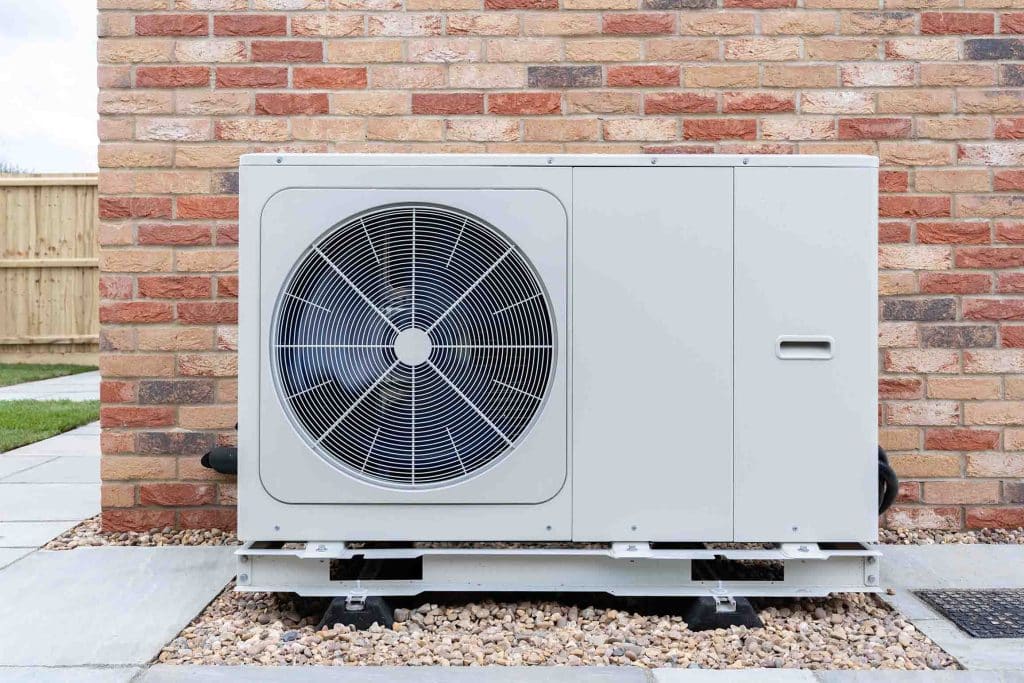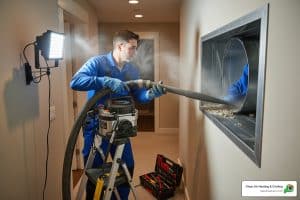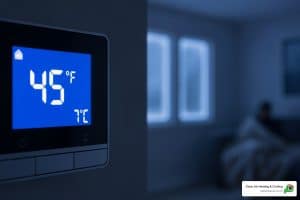How much do heat pumps cost? This will always be one of the first questions any heat pump shopper will ask when researching their heat pump options. We’ve answered this question thousands of times over the years, and these days, hundreds of prospective heat pump buyers will ask us for quotes or estimates every year, and many folks will raise the question in the first few minutes of our conversations. We get it.
At Clean Air Heating & Cooling, we strive to educate every prospective buyer, even if that leads you towards a different type of heat pump. This article will offer some realistic price ranges based on real-world installation and accessory costs right now (in 2023).
Please keep in mind that all prices, whether for heat pump installations, accessories, or anything else, are only estimates based on the average heat pump project in 2023. Prices can and often do vary drastically based on the product(s) you choose, where you live, your chosen installer, and many other factors.
How Much Does A Heat Pump Cost?
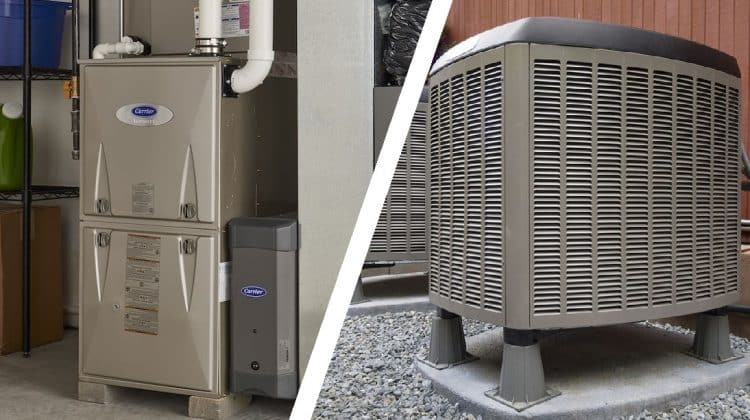
It’s tough to answer this question right off the bat because heat pumps have so many variables and options it’s often tough to know the price until you’ve figured out exactly what you want. It’s important to have skilled professionals assess your home and the area adjacent to your home where the heat pump will be placed to figure out if it might need any special approaches or non-standard installation work.
Most heat pumps will cost $7,000 to $85,000 to install in 2023 – the higher price includes the installation of most appropriate air quality products, zoning and any basic accessories. We’ll explain more.
Price matters (it’s not the only consideration, but it is pretty important). Price often dictates what type of heat pump, and any heat pump options and accessories, you might get. You need to develop an initial budget and plan for any long-term ownership costs, and that’s true for any heat pump, at any size, in any configuration you might want.
As with any major home improvement project, this price range can increase dramatically as you add more options and more elaborate designs, which might include air flow efficiency improvements, landscaping or hardscaping under and around the heat pump outdoor unit, multiple accessories, and so on.
We can provide more precise price estimates by county for our customers in the Bellingham, WA area, as different locations and services will affect the overall costs. The following video will help explain some of the ins and outs of heat pumps so you can understand exactly what you are paying for:
Just The Heat Pump
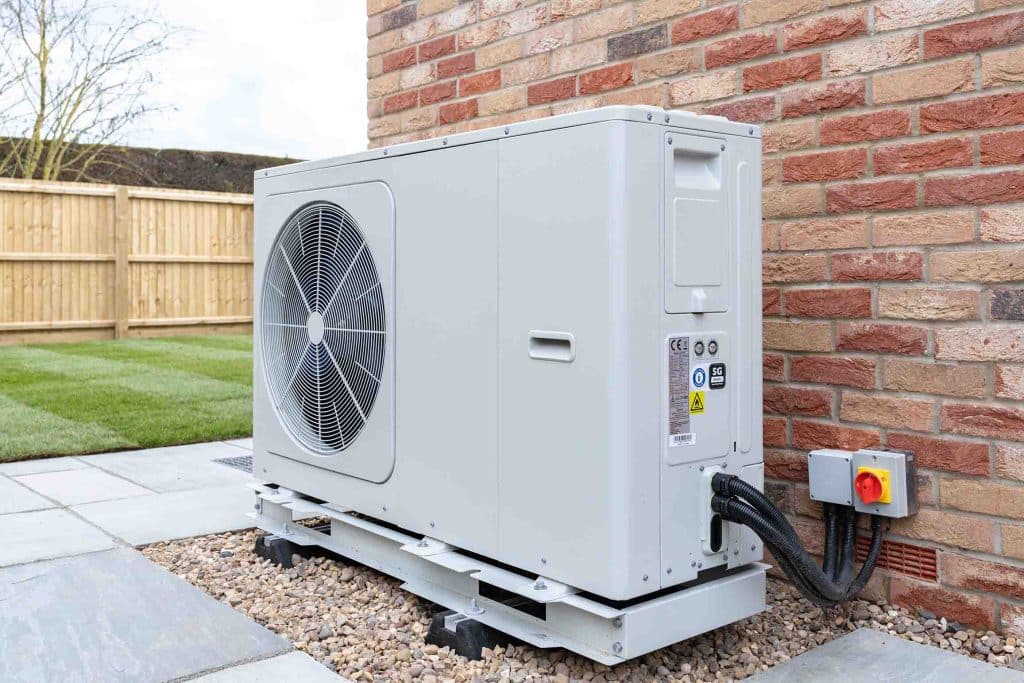
Some customers just want a heat pump. Installing an electric heat pump involves many other costs. However, some people out there want to do everything themselves, which tends to mean buying and installing every single component on their own.
Please keep in mind these price ranges don’t include shipping and installing the heat pump or any accessories. The efficiency of the heat pump also has a role to play when it comes to the overall cost of the product. Below is a range of costs you can expect to pay based on the size of the heat pump:
- A small heat pump (for a home under 1,200 sq ft): $7,000–$20,000.
- A medium heat pump (for a home between 1,200-2,400 sq ft): $11,000–$35,000.
- A large heat pump (for a home 2,400-4,000 sq ft): $16,000–$40,000.
We don’t typically recommend the do-it-yourself approach, even if you’re an experienced construction professional, electrician, plumber or engineer. There are many variables to consider, and a botched DIY installation can easily cause far more trouble and long-term costs than it will save upfront. This doesn’t mean you couldn’t do it, but from our experience in helping many clients and saving some jobs gone wrong, we noticed that although your qualifications far exceed ours, you may just overlook one or two key elements which will compromise the operation and longevity of your new heat pump. Because we have the necessary experience in the HVAC trade specifically and have the appropriate factory training, continuing education, etc, we can make the installation of a heat pump system look easy.
Another important reason why some do-it-yourselfers don’t end up installing their own heat pump is because most brands won’t warranty any parts if a failure were to happen during the warranty period. We’ve come across this multiple times and it’s a real let down for the homeowner when we make every attempt to obtain a part under warranty or labor coverage only to hit closed doors.
We are not saying that every self-installing heat pump job leads to problems up front or that every DIY heat pump installation will fail during the warranty period. We encourage every client who is researching heat pumps to consider if saving a few hundred to a few thousand up front is more important than peace of mind, comfort, long life and low breakdown rates from their new heat pump.
Basic Install
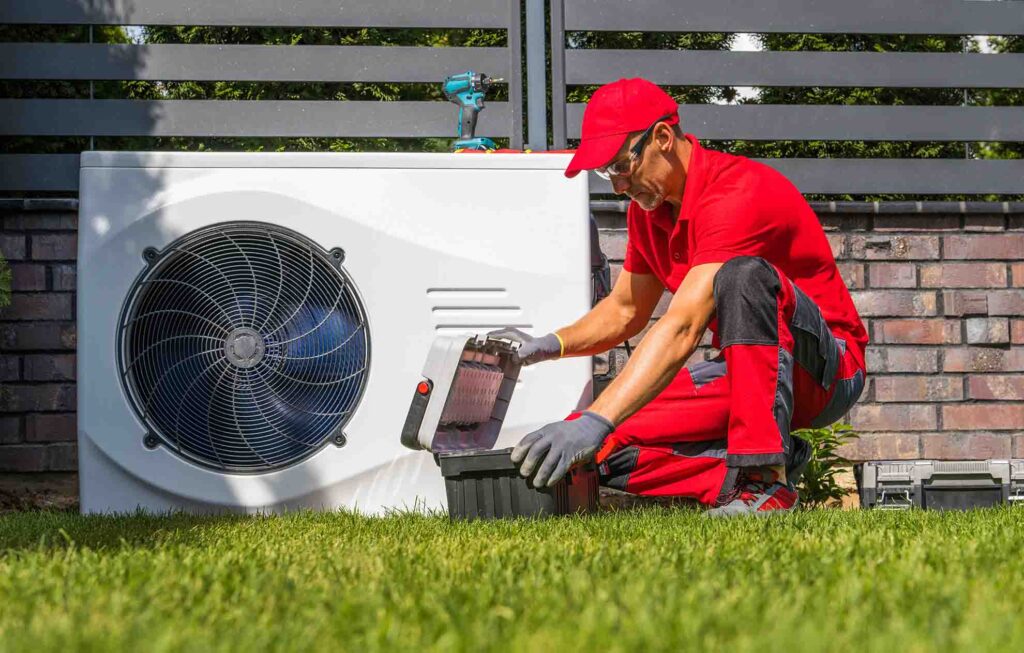
Typical prices for a basic install can range from $4,000 to $10,000. This is a pretty big range, but there are a pretty wide range of potential heat pumps you might install, and different sizes and shapes come with their own considerations, regardless of any add-ons you may want. A basic installation typically includes:
- Heat pump
- Shipping, delivery and placement
- Indoor unit (coil or air handler)
- Ductwork modifications and transitions
- Thermostat and outdoor sensor
- Filter (typically a 20x25x5” media filter MERV 11 or higher)
- Mechanical and electrical permits and inspection from the local authority having jurisdiction
- Installation labor, fine tuning, testing and commissioning
- Warranty registration
Most basic heat pump packages don’t include other options or airflow efficiency improvements.
Prices have risen in 2023 due to multiple factors, such as a surge of new demand stemming from the COVID-19 pandemic, and supply chain disruptions that have created material shortages and price spikes in many of the essential components needed for manufacturing and installing a heat pump. In reality, since 2020, most heat pumps have increased in price multiple times per year for a total of about 25%-30% per year. Heat pumps contain steel, copper, aluminum which have gone up 5-10. Basic heat pumps and mid range efficiency heat pumps have control boards which contain microchips and precious metals. You might already know about these shortages and price wars that have happened in the last few years. High efficiency heat pumps are usually variable speed with inverter compressors and these rely on a lot of logic and software. The control boards on these units are large and there are multiple. This obviously increases the price up front.
Basic Install Plus Airflow Improvements
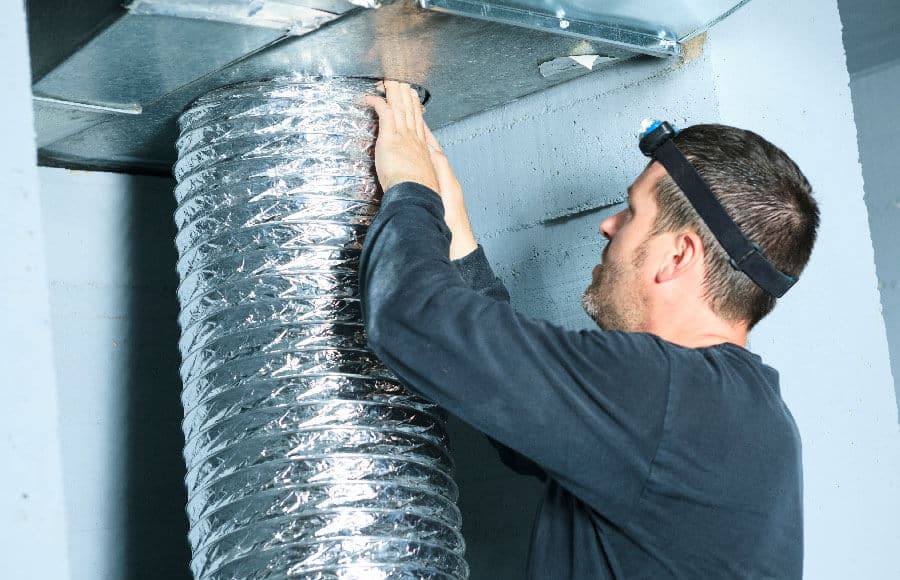
Most heat pump installations will require adding turning vanes, supply ducts, return ducts, increased filter capacity, upsized return grilles or high velocity return grilles. Many people buy heat pumps and after the installation they discover that the house is not comfortable in the winter or summer. If the heat pump was chosen and sized correctly then there is only one reason why it’s not performing: poor ductwork.
In many new homes, and of course old homes, ductwork wasn’t designed correctly or not designed at all. Older electric and gas furnaces are somewhat forgiving to the lack of airflow capacity in old ductwork, however that is not the case with heat pumps. The BTU capacity of the heat pump is directly affected by the ductwork airflow measured in CFM (cubic feet per minute). In other words your new heat pump may produce 30,000 BTUs of heat and your ductwork can only carry 20,000 BTUs. This would appear to you as if your new heat pump is not performing well but in fact it is limited by the existing ductwork.
During the design phase of the project, the HVAC professional must inspect and test the ductwork and its maximum capacity. If this measurement falls below the requirements of your new heat pump, your HVAC professional will design improvements to increase airflow. The possibilities and limitations for airflow improvements vary from house to house and are dependent on the characteristics of the structure.
Airflow improvements may add cost to the heat pump installation anywhere from $600 to $14,000.
Turnkey All Inclusive Installations
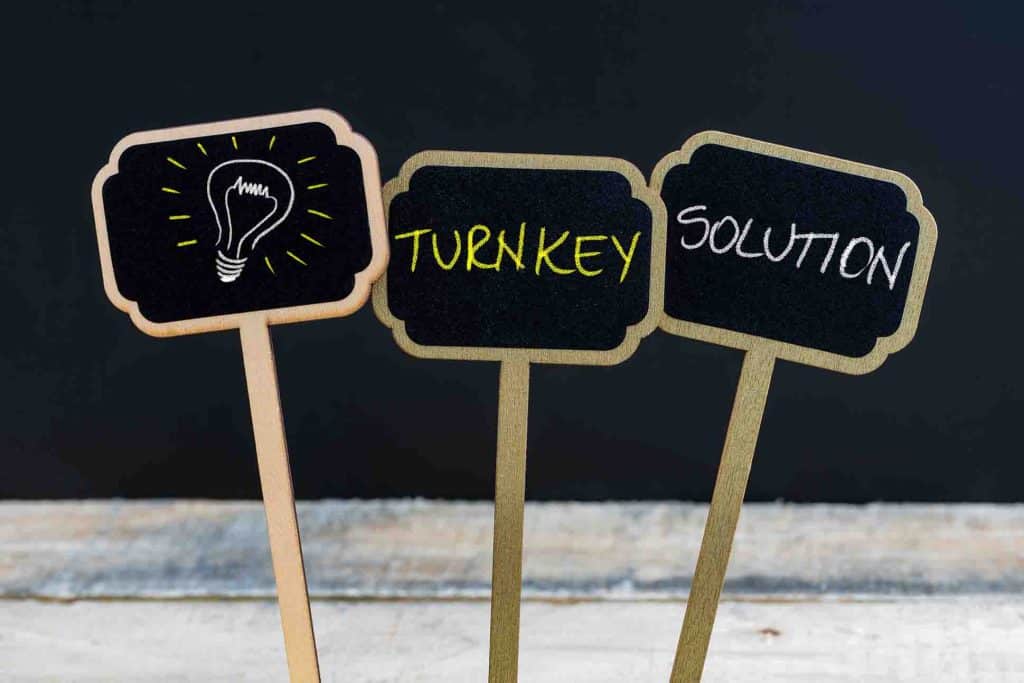
A turnkey heat pump installation includes everything we’ve already covered — the heat pump, the air filter, and airflow improvements — but will also include air purifiers, duct cleaning, sanitization and duct air sealing, smart thermostats which integrate with Google Assistant, Apple Home, Amazon Alexa, IFTTT and other home automation systems, and electrical costs.
A typical turnkey all inclusive heat pump system price range for Clean Air Heating & Cooling clients in 2022 was between $35,000 and $85,000.
Prices For Other Options
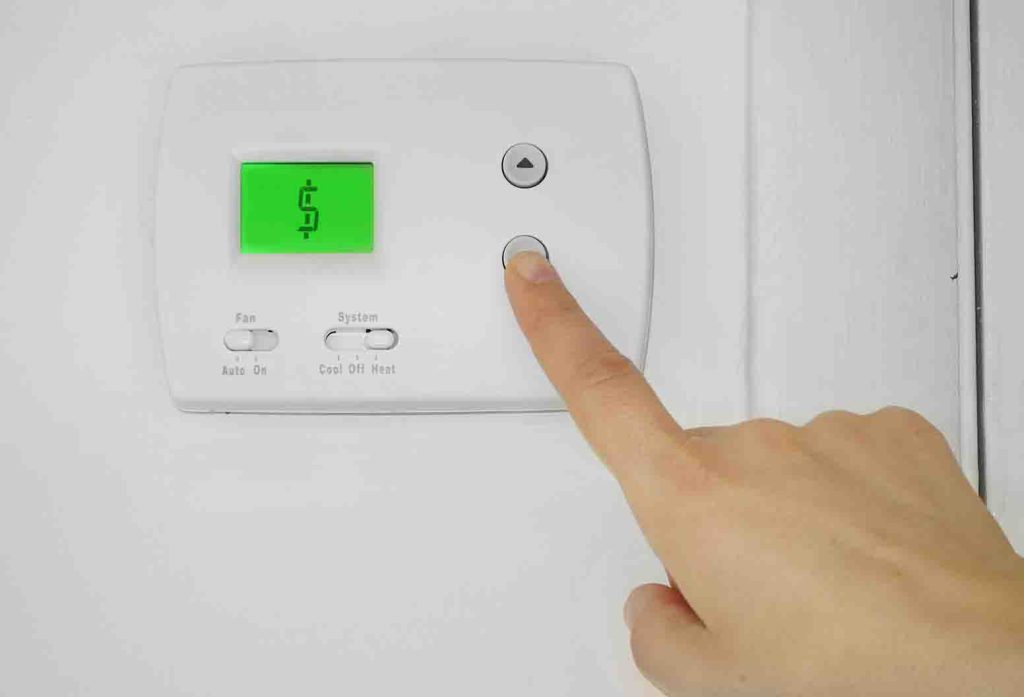
10 or 12 year parts and labor coverage usually cost $1,400–$2,100.
Respicaire, Air Scrubber, REME Halo, iWave air cleaners usually cost $1,100–$2,300.
Surge Protectors cost $310–$470 in most cases.
Voltage monitors are highly recommended on today’s heat pumps and they not only will protect your investment but will give the HVAC service technician ways to diagnose power issues which can affect the operation of your new heat pump which is heavy in electronics. Voltage monitors prices installed range from $900–$1700 in most cases.
Most heat pumps cost $6,500 to $18,000, not including the costs for electrical hookup.
Most electricians charge $1,800–$2,400 to run a new electrical circuit from the electrical panel to the heat pump outdoor unit.
New Electrical Panel Upgrades are common. Depending on the size, they can obviously vary a huge degree. Most electrical panel upgrades cost between $3,500 and $5,000, but larger and more elaborate electrical panel replacements sometimes cost upwards of $7,500+.
Some homeowners ask us if they should be concerned about the location of the heat pump outside. First of all let us put your mind at ease. Heat pumps are designed and built to be out in the elements. Some brands do this better than others and we are happy to discuss this further. But in general, the risks come from snow falling off, falling branches during storms, accidental damage from lawn mowers or weed eaters, and construction activity around the heat pump.
The solution can be fences around the heat pump and a roof above the heat pump to protect it from the elements or other damages. If a fence or a roof is built around a heat pump, it must allow for airflow and have the correct clearance as per manufacturer’s specifications. Most fences and roofs built to protect a heat pump cost $400 – $3,200 depending on material type, soil type, plants and structures in the vicinity.
Again, everything here is simply an estimate, and your final price may look much different. We hope you’ve developed a better feel for the potential costs of installing a heat pump in your home and backyard, including the overall heat pump pricing range, and what to expect when you start going through the heat pump buying process.

